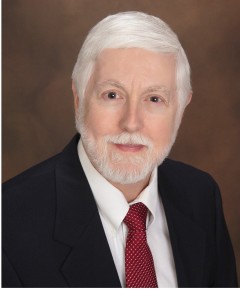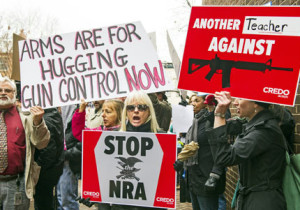Thinking about gun culture led me to ponder its converse, which isn’t commonly mentioned. Is there an “anti-gun culture”?
Again, “culture” comes from the idea of “cultivating” things, including human achievements, and understanding and appreciating them. It refers particularly to the customs and attitudes that characterize a particular social group. The term applies to people who value certain traditions, skills and accomplishments (say, those who appreciate firearms). But do people form a “culture” by devaluing things (say, gun rights opponents)?
Anti-gun exponents do share a belief system: that safety can be heightened by minimizing the number of guns in the world and restricting who has them. Taken to the extreme, that would be zero and no one. However, “no one” is who would be more safe overall as a result. But at least it’s a coherent view of a solution to a real problem, the human toll caused by shootings.
Anti-gun advocates are very clear about their ideals, even though they’re totally unrealistic in a country like ours:
- Senator Dianne Feinstein in 1995 wanted “an outright ban, picking up every one of them”.
- “America Needs to Ban Handguns” according to the Violence Policy Center in 2000.
- Governor Andrew Cuomo in 2012 allowed that “Confiscation could be an option.”
- Senator Dianne Feinstein in 2013 wanted “us to step up and ban these weapons” [i.e., modern semi-automatic rifles].
- Michael Bloomberg said in 2015 that guns need to be removed from minority males aged 15 to 25.
Meanwhile, more guns are purchased by Americans every year, with extensive resistance to more restrictive registration schemes. Among the United States’ 320 million people there are now probably over 300 million guns in about 43 million households containing about 113 million people.
By comparison, there are 253 million cars and trucks, with no movement to restrict the variety or design of vehicles comparable to the assault on guns. Anti-gun activists are learning that in order to pursue their ends they’ll have to change the widespread gun-friendliness of American culture—their new goal.
Holding a minority viewpoint (theirs, about further gun control being desirable) can strengthen a sense of group identity and specialness. Tilting at windmills can make us feel more virtuous than ordinary folks. Fighting for a cause, even a losing one, feels ennobling. But once we are so emotionally invested, it gets very difficult to see a different perspective, no matter how rational.
Then there is “hoplophobia”, a helpless fear of guns. This may often be as much political reaction as true phobia, but it’s certainly rare for anti-gun activists to be seen handling firearms.
For all these reasons, it is probably useful to understand the anti-gun movement as a “culture”. Although they don’t develop much in the way of practical skills, they are heirs to the tradition that government knows best, accomplished a lot during the 20th century, and do share these common beliefs, goals and mentalities.
Comparatively, those of the “gun culture” have centuries of history to honor, acquire skills worth respecting, and are lately more effective propagating their values than “anti-gun culture” is in undermining them. Being for something is usually a more attractive message than being against.
History is full of clashes of cultures, mostly recorded as occurring between peoples and nations. In less dramatic ways, clashes of beliefs and values within broader cultures gradually determine the directions of nations and civilizations.
Discord over how the U.S. Constitution should be interpreted is an example that is key for our nation. The social conflict between gun and anti-gun cultures is a narrower instance, but is still a benchmark for what governing philosophies will shape the future of American civilization.
Whatever we call it, we’d better keep paying attention!

— DRGO editor Robert B. Young, MD is a psychiatrist practicing in Pittsford, NY, an associate clinical professor at the University of Rochester School of Medicine, and a Distinguished Life Fellow of the American Psychiatric Association.

